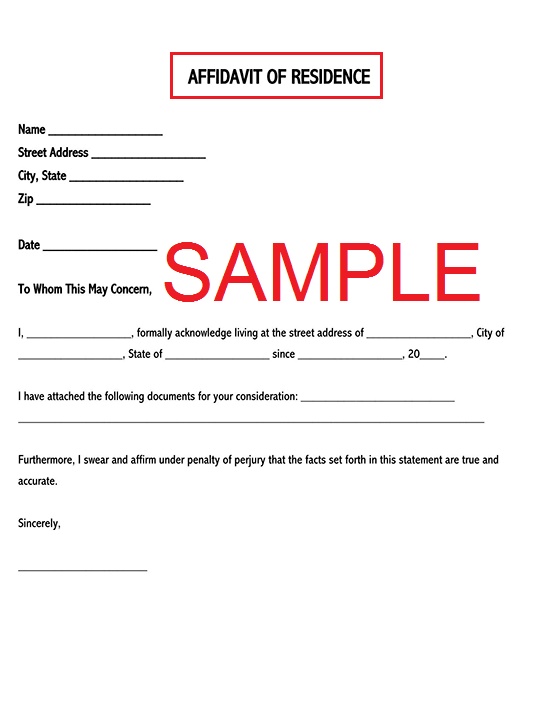You can be asked anytime to prove your residency for creating your organization’s ID card, bank account, school registration, insurance, or for some legal purpose. Companies and institutes need this information to ensure a person’s identity and comply with the local or state regulations. Additionally, this proof can prevent fraudulent practices in the relevant area.
While you live in your relative’s home, you may be asked to provide proof of residency. In such a case, it would not be less than a challenge to prove your residency.
Generally, utility bills can help you prove your residency, but what if you don’t have utility bills. Must you be inquiring with others to get a hint of proving your residency? Don’t worry because here we are with the sure-shot ways you can use to prove your residency.
Contents
Documents to Prove your Residency
The first and easiest way of proving your residency is through utility bills. If you don’t have utility bills, various other documents can save you. Depending upon the organization’s requirements, some documents may work, and some may not. In most cases, your driver’s license or state-issued ID card with your current address will suffice the need. It’s better to ask the company what documents they need to prove your residency.
Here are other documents that you can use as proof of residency:
-
Bank Statements
An account statement issued by your bank can prove your residence. Printed account statements that you get from your home printer are not acceptable. If you don’t have your statement, you have to request your bank to issue you a bank statement in preprinted form.
-
Court Letters
If you ever received court letters from city, county, or state court such as marital records, you can use them. If you have lost a copy of that letter, request a copy from that court.
-
Government Letters
You must have received a letter from a government agency. Be it city, state, or federal government agency, any correspondence from them will work for you.
-
Income Tax Statements
You must have copies of taxes received from your employer. Besides, if you have paid your taxes regularly, copies of state and federal taxes that you have already filed to the IRS can show your residence proof.
-
Real Estate Agreements
If you have any landlord contracts or residential lease agreement copies in your name before residing in your relative home, you can use them as proof.
-
School Records
Even your school transcript certificates or other official record certificates can help you. If lost, you can request your school or college to resend that certificate.
-
Vehicle Registration
Fortunately, if you have a vehicle, you must have an official state vehicle registration card with your name and address. If not, request your registration card from our state’s Department of Motor Vehicles (DMV).
➡ READ ALSO: Useful Questions for Tenant Referencing.
Proof of Residency Letter
The second way of proving your residency is through a proof of residency letter. Many institutions and agencies accept it. It can help you officially prove that you live with your particular relative or family member. It is a verification letter of your residency.
This letter can fulfill the need in instances such as school admissions, university admissions, and state government purposes. In the letter, you have to add the date you started living with your relative or the total time you have been living with the relative in their home.
After filling the document, the homeowner should sign the declaration that you are living in his home. Finally, notarize the document from the notary public to increase its authenticity and validity.
For your convenience, here is an example of a generic Proof of Residency Letter (which is also known as an Affidavit of Residence):

Writer and content creator interested in Entrepreneurship, Marketing, Jobs and landlord issues. I have a bachelor’s degree in Communication from the Andrés Bello Catholic University, VE, and I also studied at Chatham University, USA. In this blog I write and collect information of interest around agreements, property and mortgage.